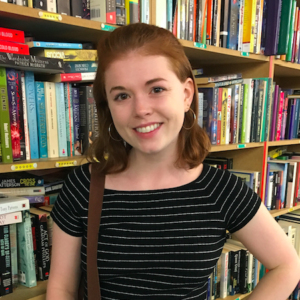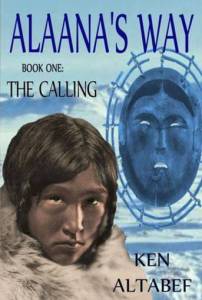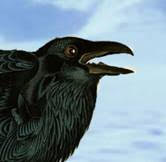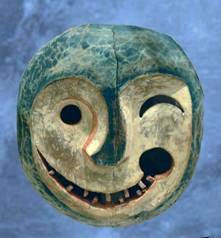 From Octavia Butler, author of multiple Nebula- and Hugo-award-winning novels, to longtime Star Trek scriptwriter David Gerrold, LGBT+ creators have long played a major part in steering the direction of speculative fiction. And the canon has never been more diverse and fascinating than now, with authors from a wonderfully wide range of backgrounds and experiences.
From Octavia Butler, author of multiple Nebula- and Hugo-award-winning novels, to longtime Star Trek scriptwriter David Gerrold, LGBT+ creators have long played a major part in steering the direction of speculative fiction. And the canon has never been more diverse and fascinating than now, with authors from a wonderfully wide range of backgrounds and experiences.
In this post we want to particularly spotlight all the contemporary LGBT+ writers of speculative fiction who are bringing their own perspective to science fiction and fantasy. Whether it’s semi-autobiographical surrealism or a unique, intricately imagined other world, you’re sure to find something on this list that piques your interest. Perhaps you’ll even discover a new favorite author, or one who motivates you to write your own book!
So without further ado, here they are, for your enjoyment and inspiration: 11 LGBTQIA authors of contemporary spec fic that you should know.
1. Michelle Ruiz Keil (author of All of Us with Wings)
Keil just exploded onto the scene with the June release of her YA fantasy debut, All of Us with Wings. This elegantly crafted novel follows seventeen-year-old governess Xochi “” who, like Keil, is bisexual and Latinx “” after she and her young charge accidentally summon a pair of vengeful demons to attack people from Xochi’s past. If you’re looking for an own voice LGBT author whose stories involve fantastical elements, yet still feel incredibly down-to-earth and authentic, Keil is definitely one to add to your list. “My favorite books make me feel seen and known and accompanied”¦ less alone,” she noted in a recent interview with mitú. “My deepest hope is that is that All of Us with Wings will be that kind of company for its readers.”
2. Malinda Lo (author of Adaptation)
Like your reads dark, dystopian, and with a distinctly sophisticated voice? Lo and behold (no pun intended), you’ve found your literary champion. Malinda Lo, a Chinese-American author with several speculative fiction books under her belt, has also written for LGBT culture site AfterEllen and helped co-found Diversity in YA. (Talk about a woman of many talents!) After the success of her first novel, a queer retelling of Cinderella, Lo went on to write the sci-fi/thriller series Adaptation, which centers on a young woman named Reese as she attempts to make sense of the world in the wake of an unprecedented natural disaster “” discovering herself in the process.
3. Alex London (author of Proxy)
Though Alex London has been around for a while, he’s often published under the slightly altered pseudonym of C. Alexander London, so you may not be sure exactly who he is. Rest assured, however, that his brilliance remains intact no matter what name he’s using. London’s first series, Proxy, boasts one of the most intriguing speculative premises we’ve heard in recent years: in a post-apocalyptic society, the 1% are punished for their misdeeds by being forced to watch a proportionate sentence carried out on a proxy, or a poor person who subs in for them. But when rich boy Knox and his lower-class proxy Syd (who happens to be gay) disrupt the system, the results are both revolutionary and shockingly unpredictable “” a truly impressive feat in the oversaturated dystopian YA market.
4. J.Y. Yang (author of The Black Tides of Heaven)
Yang, a queer and non-binary author, specializes in “silkpunk,“ which draws inspiration from real-life East Asian culture and history. Their first book, The Black Tides of Heaven, kicks off with a pair of twins “” Akeha and Mokoya “” coming into their supernatural abilities. Mokoya is gifted with prophetic vision, but Akeha’s talents are a bit more slippery: he sees not just what will happen, but what could happen. This leads him to align himself with the rebellion against his government”¦ and against Mokoya, who serves it. Throughout the story, Yang demonstrates an incredible knack for characterization even in the midst of complex worldbuilding, and their full Tensorate series (which starts with Black Tides) only affirms their perfectly balanced technique.
5. Claudie Arseneault (author of City of Strife)
Arseneault’s niche is aromantic and asexual characters, reflective of her own underrepresented experience as an aro/ace woman. In City of Strife, many of the characters are explicitly asexual and aromantic, with the narrative emphasizing and celebrating their close platonic friendships. However, this is by no means the focal point of the story, which is an elaborate political fantasy about a city crumbling under the weight of various power struggles. In terms of social issues, City of Strife and its sequels deftly address everything from labor practices to racial profiling. However, Arseneault’s inclusion of ace/aro characters (and her provision of resources for readers and authors hoping to learn more) make her a sublime role model for the “A” segment of the LGBTQIA community.
6. Akwaeke Emezi (author of Freshwater)
Emezi, whose widely acclaimed debut Freshwater came out last year, says that they wrote it “specifically for people who are inhabiting marginalized realities” “” in terms of more than just gender/sexuality, but on a mental, spiritual, and overall experiential level. After reading a few pages of Freshwater, one cannot deny that this has been impeccably accomplished, as the story about a young woman battling dysphoria, trauma, and her (literal) inner demons is like nothing you’ve ever read before.
A particularly interesting aspect of Emezi’s work is their use of POV: Freshwater is narrated by the ogbanje, or malevolent spirits, that haunt the consciousness of the main character Ada. The ogbanje refer to themselves as “we” and Ada as “she,” a nod to how marginalized/isolated people often feel that their lives are out of their control “” which Emezi drew from their own experience, and which many others will surely relate to as well.
7. Carmen Maria Machado (author of Her Body and Other Parties)
Already a well-known name in literary circles, Machado published Her Body and Other Parties in 2017: a masterful fusion of science fiction, psychological thriller, horror, and weird fantasy that elevated her to speculative fiction royalty. This anthology will target all of your most primal and abstract fears, including a blood-curdling retelling of the infamous “green ribbon” ghost story, the tale of a woman whose obsession with her weight that has very unintended consequences, and a surreal series of Law and Order episodes with phantasmagorical horror elements inserted. The common thread here is the objectification and subjugation of women, which Machado presents as both universal and particular, especially through the unique lens of queerness.
8. Kameron Hurley (author of The Mirror Empire)
Even darker than Machado’s work is Hurley’s Mirror Empire, a bloody, carnal, grimdark (no hopepunk here) work of fantasy that’s not exactly palatable, but still incredibly engrossing. Why? Because Hurley turns established tropes on their heads to create a groundbreaking new world. In this book, not only are women leaders and warriors, they far outnumber their male counterparts. You could call it a matriarchy, but even that’s not a strong enough word. The women utterly dominate the males, using them as slaves and sexual objects”¦ which can be disturbing at times, but given the profusion of the reverse dynamic in fantasy, is also quite bracing. Of course, Mirror Empire cannot and should not be read uncritically (that’s the point of having morally gray characters), but Hurley’s done a stand-up job of creating a totally radical world that will especially appeal to GoT-weary female fantasy readers.
9. C.M. Spivey (author of From Under the Mountain)
Continuing in a similar vein, C.M. Spivey’s From Under the Mountain is another excellent recent addition to the high fantasy canon. It revolves around nineteen-year-old Guerline, who is thrust into the role of empress before she’s even got to grips with her non-royal identity”¦ and how she feels about her lower-class companion, Eva. But personal matters are soon eclipsed when an ancient mystical evil rears its ugly head, and Guerline alone must decide how to proceed.
Spivey himself is a longtime writer of speculative fiction, and as a panromantic asexual trans man, he is “committed to queering his favorite genres” (according to his bio) “” which clearly comes across in the unconventional fantasy novel that is From Under the Mountain.
10. Noelle Stevenson (author of Nimona)
You might know Stevenson from her work on Lumberjanes and the super-cool She-Ra reboot, but did you know she also wrote and illustrated the fantasy webcomic-turned-graphic-novel Nimona? For those who didn’t, a quick synopsis: Nimona is a spirited young shapeshifter who serves as a supervillain’s sidekick. But as the story unfolds, we see that Nimona and her boss, the knight/mad scientist Lord Ballister Blackheart, are not all they seem “” and that their purportedly “good” nemeses are hiding something. Indeed, much of Stevenson’s work involves deconstructing shallow first impressions and creating fully three-dimensional characters in their wake, breathing life into them with her artwork.
11. Larissa Lai (author of The Tiger Flu)
Rounding off our list at #11 is Larissa Lai, whose 2018 sci-fi novel The Tiger Flu was her first in 16 years! The women of this story are parthenogenic, meaning they can reproduce asexually, without men; however, they do suffer from chronic organ failure, which means they depend on a “starfish” among them to donate and then regenerate her various body parts. And when this starfish woman dies of the titular flu, her lover Kirilow has no time to grieve “” she must venture into a fully infected city to find another starfish, so she and her sisters will not die. A thoroughly original, unadulteratedly feminist work of speculative fiction, The Tiger Flu has been described by Lai as a definite challenge to her writing, but praised by critics as her best work yet.
 This guest post is from Savannah Cordova, a writer with Reedsy, a marketplace that connects authors and publishers with the world’s best editors, designers, and marketers. She’s very interested in content marketing trends and hacks for creators. In her spare time, Savannah enjoys reading contemporary fiction and writing short stories.”
This guest post is from Savannah Cordova, a writer with Reedsy, a marketplace that connects authors and publishers with the world’s best editors, designers, and marketers. She’s very interested in content marketing trends and hacks for creators. In her spare time, Savannah enjoys reading contemporary fiction and writing short stories.”
#SFWAAUTHORS











